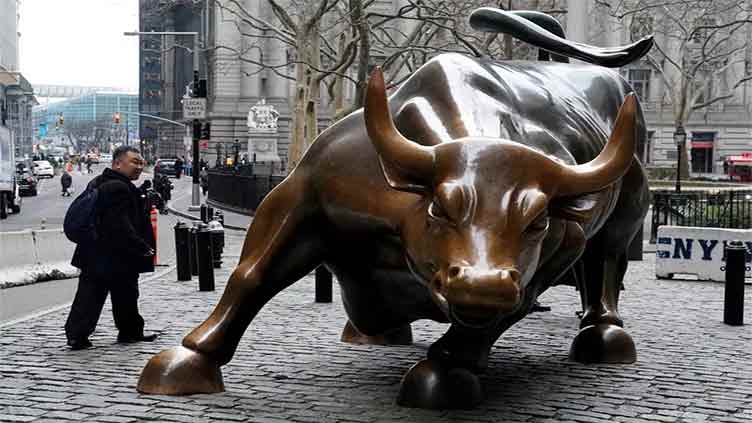For investors, 2024 is year of transition to a new economic order

Business
For investors, 2024 is year of transition to a new economic order
(Reuters) - Investors appear convinced that major Western central banks are close to a much awaited pivot, from raising interest rates to cutting them. Markets rallied as a result, but 2024 could hold surprises as the world adjusts to an economic order where money is not cheap.
Global stocks rallied and top government bond yields fell in recent weeks, despite central bankers cautioning against pivot bets. In the United States, for example, investors are now effectively positioned for the Federal Reserve guiding the economy to a perfect landing, bringing down inflation without triggering a recession.
The market's conviction comes after the U.S. economy surprised people with its resilience. That was cushioned in part by consumers' pandemic savings and America's attractiveness as a safe port for investments in an increasingly chaotic world. They could be right -- a well-known economist and former Fed official earlier this year argued the Fed has managed soft landings more often than is generally believed.
But many investors and executives think the probability is low. The pandemic-era savings are getting depleted and storm clouds are gathering, especially with what's shaping to be contentious U.S. elections.
Investors are betting that the Fed could cut rates by as much as 1.5% by the end of 2024, but that would still leave policy rates at close to 4%, higher than where it has been for most of the past two decades. At that level, monetary policy will still be a drag on growth, as it would be above the so-called neutral rate at which the economy neither expands nor contracts.
Add to that a host of other risks to the outlook in 2024 -- two major wars, heightened geopolitical tensions that have put globalization firmly in reverse, and elections in several countries that could radically change the world order in unexpected ways.
WHY IT MATTERS
Interest rates underpin everything, from economic growth to the price of financial assets and how much it costs to borrow to buy a car or a house.
Higher rates make riskier assets, such as technology stocks and cryptocurrencies less attractive, as investors can earn a decent return without having to take on much risk.
With money harder to come by, riskier bets can fail and bubbles burst, leading to events such as the U.S. regional banking crisis last March. As businesses struggle, they retrench. People lose jobs and new ones get scarce.
WHAT IT MEANS FOR 2O24
While the Fed and other banks have been raising rates for well over a year, the world is yet to complete the transition from the time when money was free to a period when it no longer is. 2024 is likely to be the year when the effects of that transition manifest more clearly.


